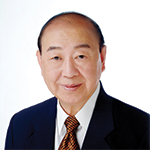“In four subsequent visits, I worked with Dr. Nighat Ahmad and her team to assist in teaching medical students, internal medicine residents, rheumatology fellows, and practicing physicians,” Dr. Walker says. “I witnessed the development of the Pakistan Society of Rheumatology into an organization of rheumatologists dedicated to educating doctors and members of the public. The membership is small but enthusiastic, and they put on an outstanding educational seminar every year.”
Dr. Ahmad says that her ACR membership helps keep her updated with the latest developments in rheumatology and keeps her connected with the rest of the world, and she encourages her colleagues to join the ACR. Muhammad Ahmed Saeed, MBBS, is the most recent physician from Fatima Medical Center to join the ACR.
“The ACR slide collection is a great resource for teaching family physicians and students,” Dr. Ahmad says. “Over the years, ACR has been generous in reducing our annual membership dues, taking into account the financial constraints of working in a developing country.”
Although Dr. Walker has been a frequent visitor to Dr. Ahmad’s program, she is not the only ACR member to do so. ACR Master Muhammad Asim Khan, MD, at Case Western Reserve University School of Medicine, with whom Dr. Ahmad trained in Cleveland, has been instrumental in helping develop the program in Pakistan, and ACR Fellow Daniel S. Sager visited earlier this year to teach in the program.
Education in Africa
Dr. Sager also has worked in Cambodia, a country of almost 15 million people with no rheumatologists, and in Kenya with ACR International Fellow Omondi G. Oyoo, MD, MMed, at the University of Nairobi. “We have talked about trying to organize a committed group of doctors to rotate in and out of the medical school in Nairobi,” Dr. Sager says. “I worked for a month at Kenya’s other medical school, Moi University, in 1997.”
Dr. Sager eagerly accepted an invitation to speak at an African League of Associations for Rheumatology meeting earlier this year. “I feel the success of clinics will eventually be dependent on the accuracy and simplicity of diagnosis,” Dr. Sager says, “and so I have been keen to discuss with my international colleagues teaching and diagnosis methodologies for medical students and community doctors that may be most practical and effective to apply in settings where time and resources are limited.”
Dr. Walker says she believes that the ACR has an important role in furthering medical education and professional development in other countries, primarily because it’s the right thing to do. Secondly, she says that new, potent, and expensive treatments are increasingly available in other countries, and all physicians treating rheumatic diseases need to know how to use them wisely. Thirdly, she says, nonrheumatologists need to be taught the proper diagnosis and treatment of rheumatic diseases because there are so few trained rheumatologists in places like Pakistan. Then, she says, the public needs proper education to promote understanding of rheumatic diseases because so many of them do not have access to the Internet, television, or daily newspapers. Finally, she says, it is important to stress the appropriate relationship between medical professionals and pharmaceutical companies. All of this, Dr. Walker says, contributes to the welfare of patients.
International Communication Key
Dr. Walker would like to see the ACR expand its formal role outside of the U.S. by establishing a speaker’s bureau for international educational meetings sponsored by groups like the Pakistan Society of Rheumatology and by creating international fellowships that pay for midcareer physicians from developing countries to travel to the U.S. for three months of observation in medical centers. She also would like to see funding developed so that the financial burden does not fall on the traveling physician.


